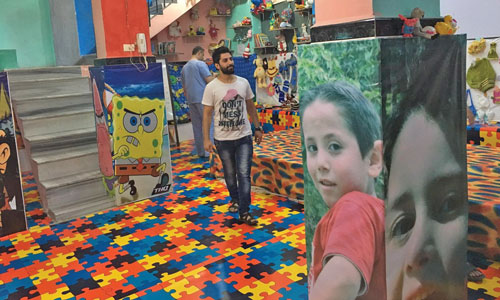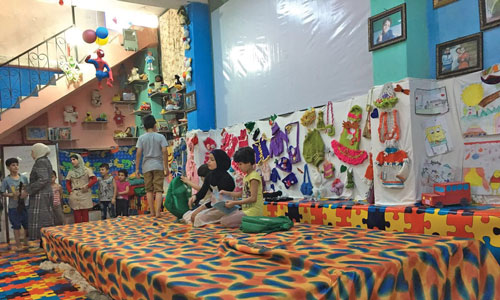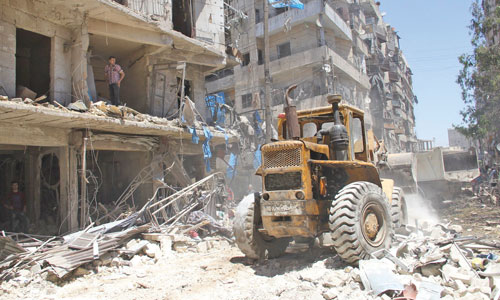A Unique shelter
Aleppo : Two floors underground, Aleppo’s luckier orphans sleep as safely as anyone can in a city at war, though they are jolted awake regularly by bombs ripping apart the streets above them.
Watching over them are Asmar Halabi and his wife, who knows in intimate, painful detail the damage explosives can do, because she still carries injuries picked up in an airstrike on a school two years ago.
The suffering of the Syrian city’s children, who have lived through years of bombing, was thrust back into the headlines this week by a photograph of five-year-old Omran Daqneesh, bereft and bloodied in the back of an ambulance.
His parents were also pulled alive from the rubble of their home, and the family has since been reunited. But as Russian airstrikes and government barrel bombs tear apart rebel-held east Aleppo street by street, many children endure even greater shock and loss.
Halabi’s 50 charges at the Moumayazoun (Outstanding Guys) orphanage are some of the most vulnerable individuals left in the city. The orphanage moved below ground when relentless bombardment became too much for normal life to continue, and it now provides a subterranean haven.
The children range in age from two to 14. Their parents have been killed or become mentally ill, or have been snatched away in some other cruel fashion by a conflict now moving towards its sixth year.
“They have adjusted in an extraordinary way to this terrible life,” Halabi said. “For instance, they used to feel scared when they heard the sound of planes, but nowadays they want to go out the building and stare at the sky to see the jets or helicopter when they hear them overhead.”
Many had been made homeless, like siblings Omar, 12, and Mufedah, 13, found sleeping in rags on the stairs of their uncle’s apartment building.
He had forced them into the ruined city to beg for food and small change after their father died and their mother had a nervous breakdown and then disappeared, Halabi said.
Although their relative had barred them from his apartment, his doorway still seemed safer to the children than the streets.
The orphanage opened last year after activists raised concerns about the growing number of destitute young people scraping a living alone. It has space for another 100 children, and new residents arrive with tragic regularity.
“We did a survey about the number of children who had lost one or both parents, and sadly we found a large number,” said Halabi, who was a trader before the war and has no children of his own.
His team of 25 ranges from cooks and security guards to teachers for everything from maths and Arabic to knitting and Qur’an recitation.
Among the most important figures at the orphanage are the full-time psychologists, who have a dedicated counselling area where they work with children such as eight-year-old Yasmeen.
Having lost her mother and father, Yasmeen arrived with a fear of the dark after volunteers found her begging on the streets, Halabi said. Today she is thriving and top of her class.
Funded by a charity and by donations from individual supporters abroad, Halabi and his team spent six months last year renovating a building into several storeys of cheerful dormitories and classrooms.
Their new home is full of colour, with swings, a handicraft area, computer sections and other games.
It has a stage, where the psychologists and teachers try to help the children tackle some of their trauma through performance.
Aleppo’s underground orphanage offers a haven for children bereaved by war. Children from ages two to 14 sleep, eat and study in subterranean refuge while the bombing continues overhead
Pictures on pillars inside the orphanage. Asmar Halabi, the orphanage’s director, is also seen
A ruined neighbourhood of Aleppo
Related Posts




